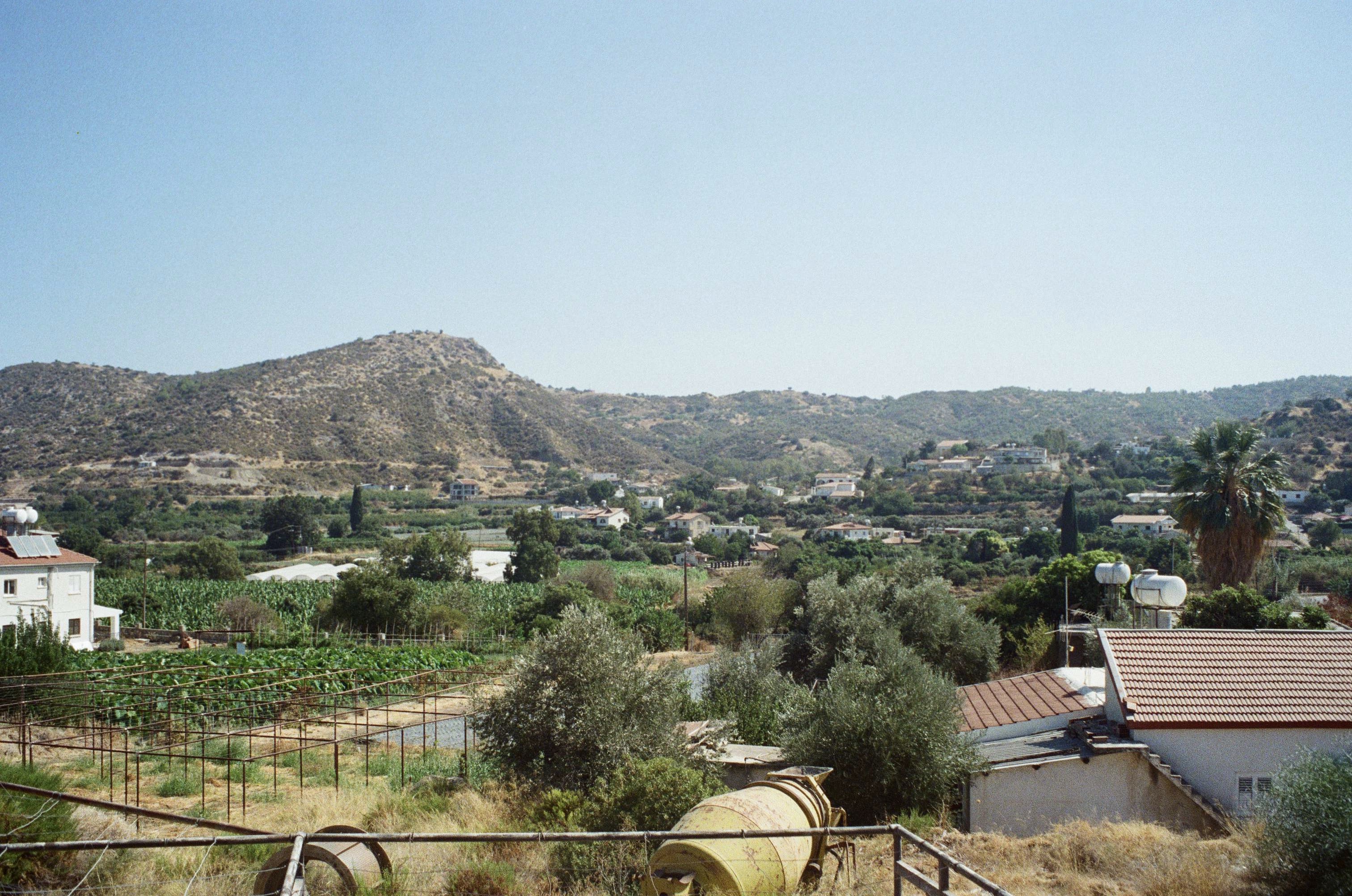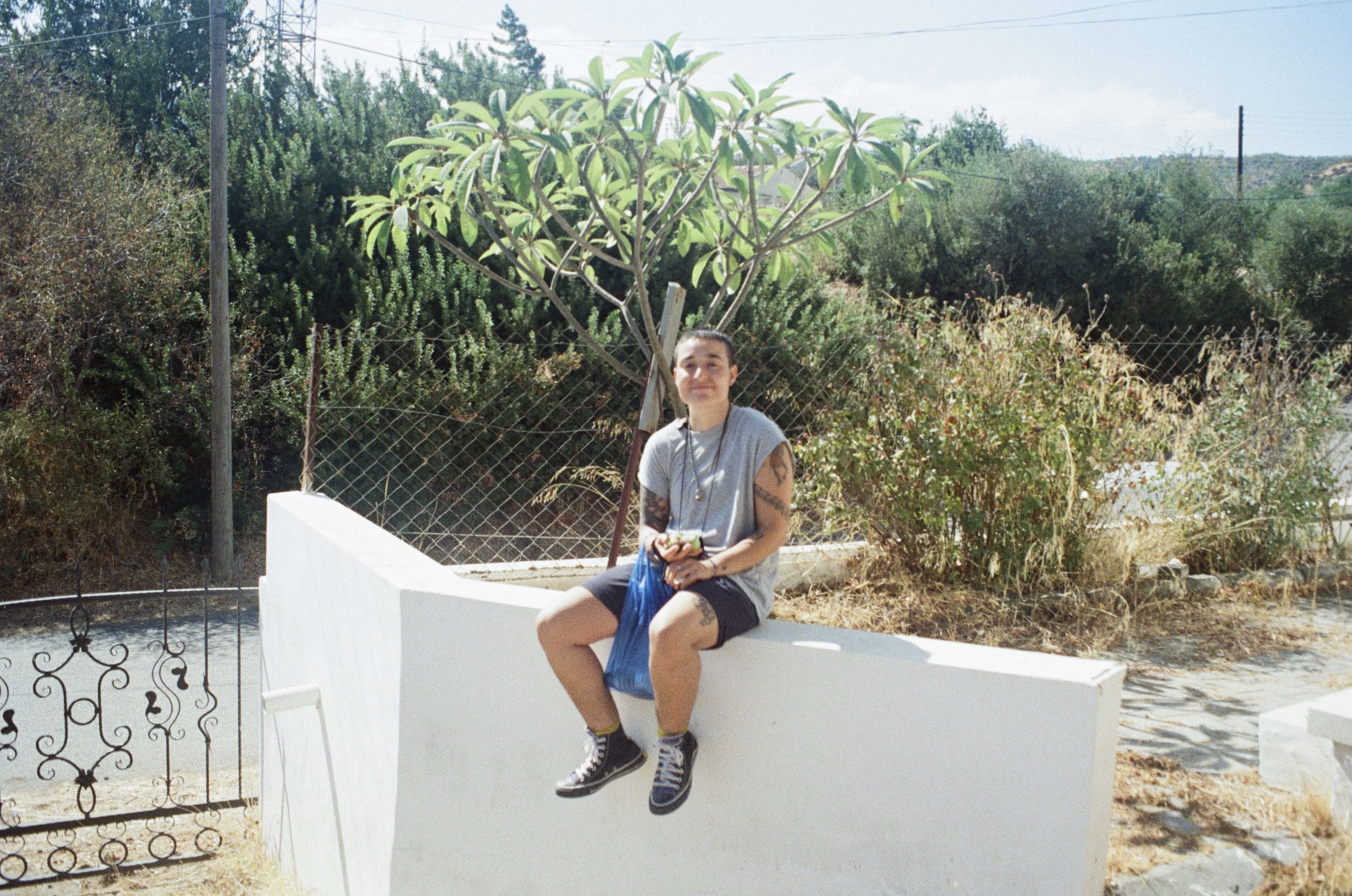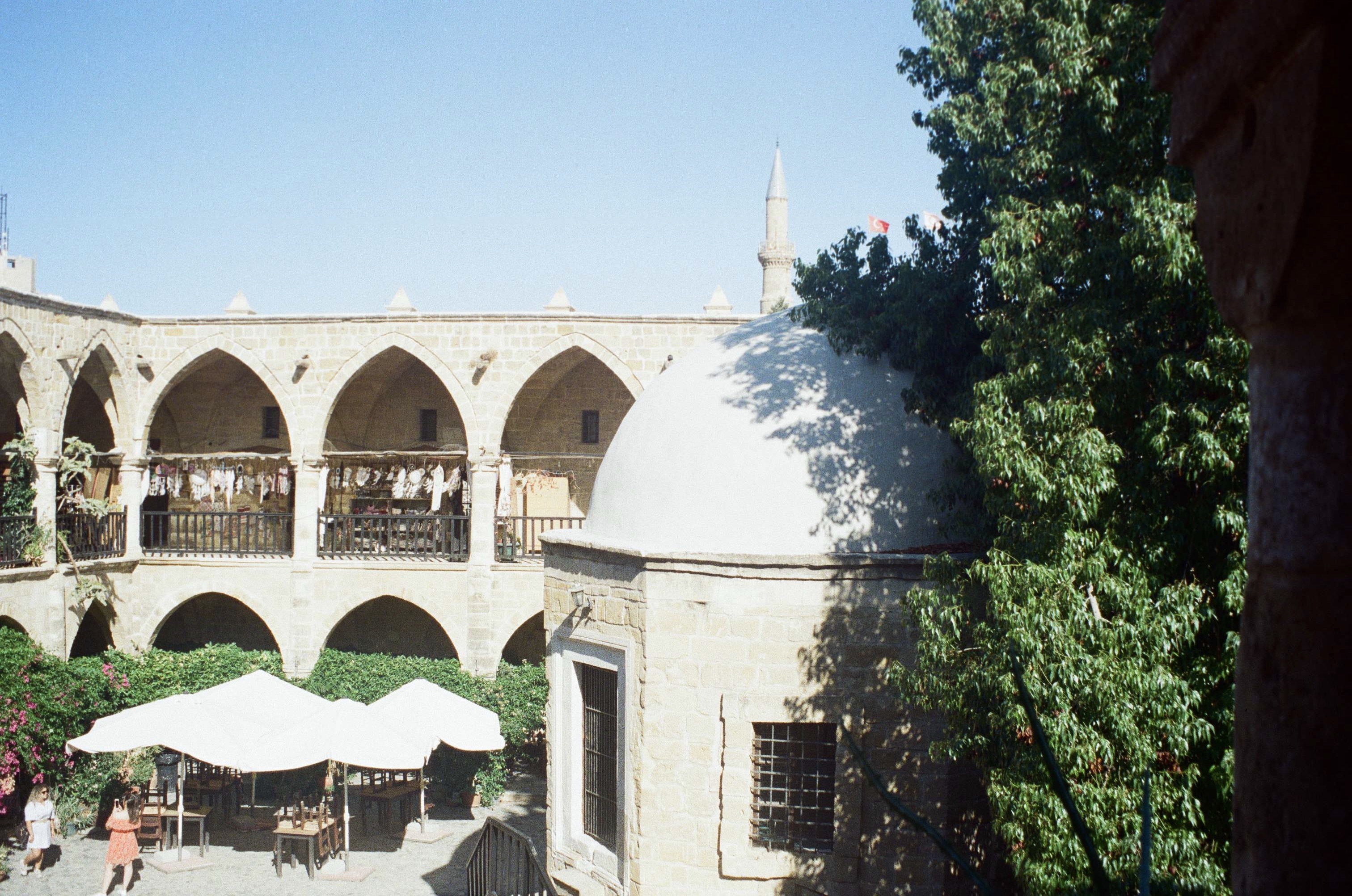How queer solidarity crosses the border in a divided Cyprus
“Cyprus is an identity crisis”: On an island with a long history of colonisation and criminalised homosexuality, LGBTQ+ communities - in the UK and in Cyprus - are building connections that transcend the border between north and south.
“Even after my 22 years on this island I am still uncertain about how people across the border are, what they do, what they celebrate, and what their culture looks like,” Theo* says.
Theo is a young gay man who has grown up in the suburbs of Lemesós/Limasol/Limassol, on the Southern side of the small island of Cyprus. I refer to Theo’s hometown, Lemesós/Limasol/Limassol, with three names, because like all settlements on the island it can be described in Greek and Turkish, and it was also anglicised when the island was under British colonial rule up until the early 1960s. These British versions of Cypriot words are what places are now most commonly referred to by non-Cypriots, but in acknowledgement of the Greek and Turkish-speaking communities that were there before the British colonised Cyprus, I use the British names last.
“Personally, I don't feel anything about the border but I know it keeps me away from a community I know nothing of, that maybe I could have a lot more in common with than I may think,” Theo says. He’s referring to the ‘green line’ that separates the island. Theo has only ever lived in a divided Cyprus – with Turkish military occupying the north, Greek officials in charge of the south and a UN ‘buffer zone’ separating these two halves.
There is another player here too – the British, who, despite ‘leaving’ the island roughly 60 years ago, still have military bases on Cyprus. Lefkosía/Lefkoşa/Nicosia, Cyprus’ capital, is currently the world’s only divided capital city. Theo, like many young queer people, is curious about the other side, and the commonalities he might share with queer people there.

An image from Yas' last trip to Cyprus (Credit: Yas Necati)
“My identity connects me with people across the border I have never met, by knowing that we all share struggles that LGBTQ+ people have to go through, since our societies both here and across the border have not yet accepted us.” Theo says. Under British colonial law, homosexuality was outlawed. While it is now legal to be queer on both sides of the island, it wasn’t until 2014 that the North legalised male homosexuality, and there are a lot of rights still to be won, particularly for trans people. Cypriots are fighting for LGBTQ+ rights on both sides of the divide, and often crossing the border to find solidarity or in order to feel more comfortable to be themselves.
Omar, who is north Cypriot and gay, was born in South London, but recalls fond memories of returning to Cyprus a few months a year throughout his childhood, mostly to Mağusa/Ammochostos/Famagusta, a harbour town on the north side. The island is special to him: “I walked for the first time in Cyprus.”
Omar is angry at Greece, Turkey, the UK and the UN for what he has experienced as their power grabbing that has divided the island. He tells me he is angry at imperialism for disrupting the native people of Cyprus.
For many queer and trans Cypriots in the UK, connecting to all parts of our identities can be a challenge. Growing up queer, non-binary, Muslim and Cypriot has been a challenge for me. It has been hard to find spaces where I can exist as my whole self. Omar shares this struggle, and we talk about how being Muslim, as most Turkish-speaking Cypriots are, brings its own challenges in Britain - where we often feel the claws of Islamophobia.
“As queer people, we’re always exploring gender and sexuality, I also feel like that about my Cypriotness”
For Omar, shame is a big part of it. “I changed my name, moved and cosplayed as a white person,” he says of his coming-out journey. When he realised he was gay, he tried to hide his Cypriot identity so that he could assimilate into the UK queer scene: “In my head, you couldn’t be Cypriot and queer. Being Cypriot is an identity crisis,” he adds. “As queer people, we’re always exploring gender and sexuality, I also feel like that about my Cypriotness.” After a while, Omar wanted to reclaim all parts of his identity. “Just because our culture is practised in a heteronormative way, that doesn’t mean we have to do that. We can reclaim it in a queer way. I can go to a wedding and enjoy a traditional testi dance. It’s ours as much as theirs,” Omar says.
Jas is nonbinary and grew up in the UK, but has lived in Larnaka/Larnaka/Larnaca in south Cyprus for the past 12 years with their Cypriot partner. Jas describes the strangeness of the island’s divide. “When there’s a political event, like elections, people have strong opinions about the border. But most of the time, people just want to know which side they can buy the cheapest petrol,” they say. Jas questions my use of the term “border” - “Should we instead call it a crossing point?” they ask.
Jas says language is another clear example of the divided nature of the island. Greek is a very gendered language, and that makes it hard for trans people - particularly if they are non-binary like Jas - while on the other side of the border, the Turkish language doesn’t have gendered pronouns.

(Credit: Yas Necati)
The next generation pushing for a united Cyprus
Jas is optimistic – they have noticed positive changes on the island in the past 10 years, particularly that the new generation of young people are much more keen for a united Cyprus.
Theo is one of these young people. “Our local governments raise us with biases towards the people and communities across the border,” Theo says. “I feel that it is an unhealthy mechanism that facilitates the division between Cypriots, imposed by people who should not be allowed to make decisions for our community,” he says. “Mainly far-right people from both sides have used it as a pillar to base their hatred on, and transmitted it to the communities across the border.
“No one told me to like the people across the border."
"All I know is that they, just like my dad's family, have lost their homes, properties, childhood memories, and valuable belongings.”
In the UK, Omar shares a similar sentiment, but also a desire for caution: “I wish for there to be one Cyprus, and there to be no border and no divide,” he says. “But, if the border disappeared tomorrow without preparation first, there would probably be chaos.”
Omar refers to the far-right nationalism present on both sides of the divide. Many young Cypriots, even if they are pro-unification, are nervous of Cypriots from across the border, unsure if they will be hateful. “Whenever I meet Greek-speaking Cypriots, I’m still wary, unsure and waiting to see their reaction to me,” Omar says. However, he doesn’t feel like this when he meets other queer people: “Because of queerness we see through the hatred. I feel a connection with other queer Cypriots.”
Gabby, another queer UK-born Cypriot, feels similarly. “The border is just sad,” she says. “I try not to think about it too much. Growing up I heard about it in such polarised ways, it’s only recently I’ve seen the nuances of the situation.”
“I find het Cypriot culture overwhelming and I avoid it”
Gabby went to Cyprus a few times as a child. However, her first big trip happened when she was 21. She travelled around Cyprus for a month as part of a youth group that brings Cypriots from around the world together. “I learnt more of the language and culture,” Gabby says. “Before, I only had a passive understanding of the culture, and I didn’t speak Greek.” Although it was life-changing, Gabby struggled being queer in a group of openly straight and cis people, and feels there needs to be more spaces for queer and trans Cypriots to come together.
This is one of the reasons she co-runs the UK-based group LGBTQ+ Cypriot diaspora, which organises events for queer and trans Cypriots. “I find het Cypriot culture overwhelming and I avoid it,” Gabby says - referring to the heteronormativity of her culture, which she experiences as oppressive at times. But building relationships with queer Cypriots has allowed her to connect with Cyprus and its culture in more meaningful ways.

(Picture: Yas Necati)
The LGBTQ+ Cypriot diaspora group is trying to create more space for people to celebrate in the UK, and they take much of their inspiration from communities based in Cyprus. “The queer communities in Cyprus have been really great at uniting across the border,” Gabby says. “It’s interesting to think about what a united Cyprus might be like for queer and trans people.”
An LGBTQ+ film festival that took place in the country’s divided capital last summer gives us a brief glimpse. Queer Wave Cyprus was designed to be bi-communal, and screened films from all over the island and beyond. “Both parts of the community were together in one place,” Jas says, and there is hope in their voice as they describe the joy and comfort in that.
“Why are we like this?” Theo asks, referring to the divisions in Cyprus as our conversation winds to a close. I’m reminded of my discussion with Omar – of the forces that have colonised, occupied, controlled and shaped Cyprus into the wound it is today. I think of how much healing we still have to do. Theo leaves me with this question: “What comes across the border?” We have the power to shape what travels across the divide in our present, and I’m hopeful about what might make that journey in the future.
*Some names have been changed
*Theo uses he/his/him pronouns. Others in this piece use different pronouns including non-binary people who use they/them pronouns
The Lead is now on Substack.
Become a Member, and get our most groundbreaking content first. Become a Founder, and join the newsroom’s internal conversation - meet the writers, the editors and more.

